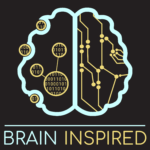
Support the show to get full episodes, full archive, and join the Discord community.

Gabriele Scheler co-founded the Carl Correns Foundation for Mathematical Biology. Carl Correns was her great grandfather, one of the early pioneers in genetics. Gabriele is a computational neuroscientist, whose goal is to build models of cellular computation, and much of her focus is on neurons.
We discuss her theoretical work building a new kind of single neuron model. She, like Dmitri Chklovskii a few episodes ago, believes we’ve been stuck with essentially the same family of models for a neuron for a long time, despite minor variations on those models. The model Gabriele is working on, for example, respects the computations going on not only externally, via spiking, which has been the only game in town forever, but also the computations going on within the cell itself. Gabriele is in line with previous guests like Randy Gallistel, David Glanzman, and Hessam Akhlaghpour, who argue that we need to pay attention to how neurons are computing various things internally and how that affects our cognition. Gabriele also believes the new neuron model she’s developing will improve AI, drastically simplifying the models by providing them with smarter neurons, essentially.
We also discuss the importance of neuromodulation, her interest in wanting to understand how we think via our internal verbal monologue, her lifelong interest in language in general, what she thinks about LLMs, why she decided to start her own foundation to fund her science, what that experience has been like so far. Gabriele has been working on these topics for many years, and as you’ll hear in a moment, she was there when computational neuroscience was just starting to pop up in a few places, when it was a nascent field, unlike its current ubiquity in neuroscience.
- Gabriele’s website.
- Carl Correns Foundation for Mathematical Biology.
- Related papers
- Related episodes
0:00 – Intro
4:41 – Gabriele’s early interests in verbal thinking
14:14 – What is thinking?
24:04 – Starting one’s own foundation
58:18 – Building a new single neuron model
1:19:25 – The right level of abstraction
1:25:00 – How a new neuron would change AI